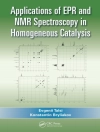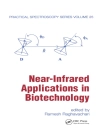A comprehensive overview of the topic, highlighting recent developments, ongoing research trends and future directions.
Experts from Europe, Asia and the US cover five core areas of imminent importance to the food, feed, pharmaceutical and water treatment industries in terms of sustainable and innovative processing and production. In the field of enzyme engineering, they summarize historic developments and provide an overview of molecular enzyme engineering, while also discussing key principles of microbial process engineering, including chapters on process development and control. Further sections deal with animal and plant cell culture engineering. The final section of the book deals with environmental topics and highlights the application of bioengineering principles in waste treatment and the recovery of valuable resources.
With its cutting-edge visions, extensive discussions and unique perspectives, this is a ready reference for biotechnologists, bioengineers, bioengineers, biotechnological institutes, and environmental chemists.
विषयसूची
List of Contributors XIX
1 Introduction 1
Toshiomi Yoshida
1.1 Introduction 1
1.2 Enzyme Technology 2
1.3 Microbial Process Engineering 2
1.4 Plant Cell Culture 5
1.5 Animal Cell Culture 5
1.6 Environmental Bioengineering 6
1.7 Composition of the Volume 7
References 7
Part I Enzyme Technology 11
2 Enzyme Technology: History and Current Trends 13
Klaus Buchholz and Uwe T. Bornscheuer
2.1 The Early Period up to 1890 13
2.2 The Period from 1890 to 1940 16
2.3 A New Biocatalyst Concept – Immobilized Enzymes 19
2.4 Expanding Enzyme Application after the 1950s 24
2.5 Recombinant Technology –A New Era in Biocatalysis and Enzyme Technology 27
2.6 Current Strategies for Biocatalyst Search and Tailor Design 32
2.7 Summary and Conclusions 39
Acknowledgment 40
Abbreviations 40
References 40
3 Molecular Engineering of Enzymes 47
Maria Elena Ortiz-Soto and Jürgen Seibel
3.1 Introduction 47
3.2 Protein Engineering: An Expanding Toolbox 48
3.3 High-Throughput Screening Systems 56
3.4 Engineered Enzymes for Improved Stability and Asymmetric Catalysis 58
3.5 De Novo Design of Catalysts: Novel Activities within Common Scaffolds 65
3.6 Conclusions 69
References 69
4 Biocatalytic Process Development 81
John M.Woodley
4.1 A Structured Approach to Biocatalytic Process Development 83
4.2 Process Metrics 83
4.3 Technologies for Implementation of Biocatalytic Processes 87
4.4 Industrial Development Examples 91
4.5 Future Outlook 95
4.6 Concluding Remarks 96
References 96
5 Development of Enzymatic Reactions in Miniaturized Reactors 99
Takeshi Honda, Hiroshi Yamaguchi, and Masaya Miyazaki
5.1 Introduction 99
5.2 Fundamental Techniques for Enzyme Immobilization 100
5.3 Novel Techniques for Enzyme Immobilization 150
5.4 Conclusions and Future Perspectives 155
Abbreviations 156
References 157
Part II Microbial Process Engineering 167
6 Bioreactor Development and Process Analytical Technology 169
Toshiomi Yoshida
6.1 Introduction 169
6.2 Bioreactor Development 170
6.3 Monitoring and Process Analytical Technology 196
6.4 Conclusion 203
Abbreviations 204
References 204
7 Omics-Integrated Approach for Metabolic State Analysis of Microbial Processes 213
Hiroshi Shimizu, Chikara Furusawa, Takashi Hirasawa, Katsunori Yoshikawa, Yoshihiro Toya, Tomokazu Shirai, and Fumio Matsuda
7.1 General Introduction 213
7.2 Transcriptome Analysis of Microbial Status in Bioprocesses 214
7.3 Analysis of Metabolic State Based on Simulation in a Genome-Scale Model 219
7.4 13C-Based Metabolic Flux Analysis of Microbial Processes 223
7.5 Comprehensive Phenotypic Analysis of Genes Associated with Stress Tolerance 227
7.6 Multi-Omics Analysis and Data Integration 230
7.7 Future Aspects for Developing the Field 231
Acknowledgments 233
References 233
8 Control of Microbial Processes 237
Kazuyuki Shimizu, Hiroshi Shimizu, and Toshiomi Yoshida
8.1 Introduction 237
8.2 Monitoring 238
8.3 Bioprocess Control 242
8.4 Recent Trends in Monitoring and Control Technologies 250
8.5 Concluding Remarks 253
Abbreviations 254
References 254
Part III Plant Cell Culture and Engineering 259
9 Contained Molecular Farming Using Plant Cell and Tissue Cultures 261
Stefan Schillberg, Nicole Raven, Rainer Fischer, Richard M. Twyman, and Andreas Schiermeyer
9.1 Molecular Farming –Whole Plants and Cell/Tissue Cultures 261
9.2 Plant Cell and Tissue Culture Platforms 263
9.3 Comparison of Whole Plants and In Vitro Culture Platforms 265
9.4 Technical Advances on the Road to Commercialization 267
9.5 Regulatory and Industry Barriers on the Road to Commercialization 271
9.6 Outlook 273
Acknowledgments 275
References 275
10 Bioprocess Engineering of Plant Cell Suspension Cultures 283
Gregory R. Andrews and Susan C. Roberts
10.1 Introduction 283
10.2 Culture Development and Maintenance 286
10.3 Choice of Culture System 288
10.4 Engineering Considerations 291
10.5 Bioprocess Parameters 294
10.6 Operational Modes 296
10.7 Bioreactors for Plant Cell Suspensions 297
10.8 Downstream Processing 303
10.9 Yield Improvement Strategies 306
10.10 Case Studies 310
10.11 Conclusion 315
References 316
11 The Role of Bacteria in Phytoremediation 327
Zhaoyu Kong and Bernard R. Glick
11.1 The Problem 327
11.2 Defining Phytoremediation and Its Components 329
11.3 Role of Bacteria in Phytoremediation 330
11.4 Examples of Phytoremediation in Action 342
11.5 Summary and Perspectives 343
References 344
Part IV Animal Cell Cultures 355
12 Cell Line Development for Biomanufacturing Processes 357
Mugdha Gadgil and Wei-Shou Hu
12.1 Introduction 357
12.2 Host Cell 359
12.3 Vector Components 360
12.4 Transfection 365
12.5 Integration of Foreign DNA into Host Chromosome 366
12.6 Amplification 369
12.7 Single-Cell Cloning 370
12.8 Selecting the Production Clone 373
12.9 Clone Stability 376
12.10 Conclusion 376
Acknowledgments 377
References 377
13 Medium Design, Culture Management, and the PAT Initiative 383
Ziomara P. Gerdtzen
13.1 Historical Perspective on Culture Medium 383
13.2 Cell Growth Environment 384
13.3 Media Types 386
13.4 Medium Components 387
13.5 High Molecular Weight and Complex Supplements 400
13.6 Medium for Industrial Production 407
13.7 Conclusions 411
References 412
Further Reading/Resources 416
14 Advanced Bioprocess Engineering: Fed-Batch and Perfusion Processes 417
Sarika Mehra, Vikas Chandrawanshi, and Kamal Prashad
14.1 Primary Modes of Bioreactor Operation 417
14.2 Fed-Batch Mode of Operation 419
14.3 Perfusion Mode of Bioreactor Operation 435
14.4 Use of Disposables in Cell Culture Bioprocesses 447
14.5 Analytical Methods to Monitor Key Metabolites and Parameters 450
14.6 Concluding Remarks 453
Nomenclature 455
References 456
Further Reading/Resources 468
Part V Environmental Bioengineering 469
15 Treatment of Industrial and Municipal Wastewater: An Overview about Basic and Advanced Concepts 471
Jyoti K. Kumar, Parag R. Gogate, and Aniruddha B. Pandit
15.1 Types of Wastewater 471
15.2 Biological Treatment 471
15.3 Wastewater Regulations 473
15.4 Biological Treatment Processes 473
15.5 Aerobic Techniques 475
15.6 Anaerobic Techniques 488
15.7 Aerobic–Anaerobic Processes 495
15.8 Modified Biological Processes 496
15.9 Overall Conclusions 511
List of Acronyms/Abbreviations 512
List of Variables and Coefficients 513
References 514
16 Treatment of Solid Waste 521
Michael Nelles, Gert Morscheck, Astrid Lemke, and Ayman El Naas
16.1 Biological Treatment of Source Segregated Bio-Waste 522
16.2 Mechanical–Biological Treatment of Mixed Municipal Solid Waste 538
16.3 Biological Treatment of Agricultural Waste 542
16.4 Conclusion 542
References 542
17 Energy Recovery from Organic Waste 545
Yutaka Nakashimada and Naomichi Nishio
17.1 Advantage of Methane Fermentation for Energy Recovery from Organic Matter 545
17.2 Basic Knowledge of Methane Fermentation of Organic Wastes 546
17.3 Conventional Methane Fermentation Process 549
17.4 Advanced Methane Fermentation Processes 551
17.5 Hydrogen Production from Organic Wastes 555
17.6 Upgrading of Biogas from Organic Wastes Based on Biological Syngas Platform 561
17.7 Conclusions 564
References 565
18 Microbial Removal and Recovery of Metals from Wastewater 573
Michihiko Ike, Mitsuo Yamashita, and Masashi Kuroda
18.1 Microbial Reactions Available for Metal Removal/Recovery 574
18.2 Selenium Recovery by Pseudomonas stutzeri NT-I 583
18.3 Future Prospects 587
18.4 Conclusions 590
References 590
19 Sustainable Use of Phosphorus Through Bio-Based Recycling 597
Hisao Ohtake
19.1 Introduction 597
19.2 Microbiological Basis 598
19.3 Bio-Based P Recycling 600
19.4 Other Options for P Recycling 604
19.5 Conclusions 607
References 609
Index 613
लेखक के बारे में
Toshiomi Yoshida is Professor Emeritus of Osaka University (Japan). He received his doctorate degree at the same university in 1968, after studying fermentation technology. From 1972 to 1973, he visited the University of Pennsylvania (USA) for a research stay. In the further course of his career, he became Associate Professor at Osaka University in 1978, Full Professor in 1988 and held several positions within the university until his retirement in 2003. From 1995 to 1999, he was Director of the International Center for Biotechnology. After his retirement, Toshiomi Yoshida was appointed as Director of the Bangkok Liaison Office of the Japan Society for the Promotion of Science, a position he hold until 2007. From 2007 to 2012, he was Director General of the Research Institute of Environmental, Agriculture and Fisheries of the Osaka Prefectural Government. In between 2009 and 2013, Toshiomi Yoshida served as the first President of the Asian Federation of Biotechnology.












